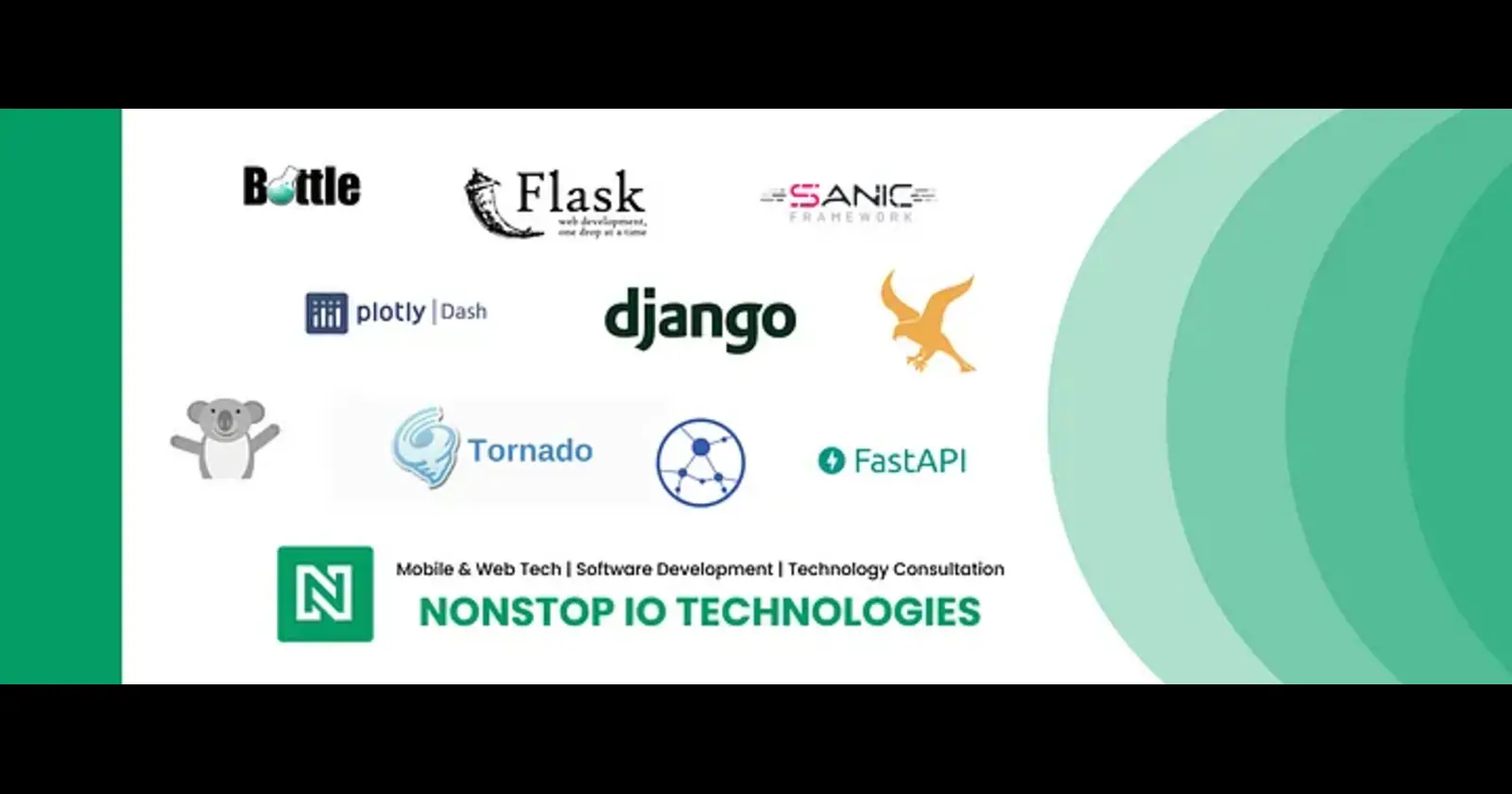Python Web Frameworks — A Comparative Study
 NonStop io Technologies
NonStop io Technologies
One of the challenges for a software developer has always been choosing the right framework/technology stack to adopt. It is important to cater to the right parameters when such a choice is to be made. A few factors that help gauge a framework are:
Github stars & forks — Helps get an idea of adoption of the framework, and the community support
Open issues — Helps identify how frequently the framework is debugged and maintained
License type — Helps understand the implication of using the framework in order to build commercial or private applications
Last commit — Helps identify how frequently the framework is updated. Note: This story is written on 04Aug’22
Documentation — Helps with the reference material you would need to build applications using the framework
Languages — Helps identify what languages are used to build the framework
Let’s look at Python’s top-10 frameworks used today to build web applications, and see how they fare on the above-mentioned parameters
1. Django

Django is a high-level Python web framework that encourages rapid development and clean, pragmatic design.
Github Stars: 65.5K
Github Forks: 27.5K

- License Type: BSD 3-Clause

Open Issues: Not Available
Last Commit: 04Aug’22

Documentation: Official Link
Languages:

2. Flask

Flask is a lightweight WSGI web application framework. It is designed to make getting started quick and easy, with the ability to scale up to complex applications.
Github Stars: 60.1K
Github Forks: 15.2K

- License Type: BSD 3-Clause

Open Issues: 2
Last Commit: 04Aug’22

Languages used

3. FastAPI

FastAPI is a modern, fast (high-performance), web framework for building APIs with Python 3.6+ based on standard Python type hints. It has a very high performance, on par with NodeJS and Go
Github Stars: 48K
Github Forks: 3.8K

- License Type: MIT License

Open Issues: 1.1K
Last Commit: 21Jul’22

Languages used

4. Tornado Web Server

Tornado is a Python web framework and asynchronous networking library, originally developed at FriendFeed. By using non-blocking network I/O, Tornado can scale to tens of thousands of open connections, making it ideal for long polling, WebSockets, and other applications that require a long-lived connection to each user.
Github Stars: 20.7K
Github Forks: 5.5K

- License Type: Apache-2.0 license

Open Issues: 199
Last Commit: 04Jul’22

Languages used

5. Sanic

Sanic is a Python 3.7+ web server and web framework that’s written to go fast. It allows the usage of the async/await syntax added in Python 3.5, which makes your code non-blocking and speedy. Sanic is also ASGI compliant, so you can deploy it with an alternative ASGI webserver.
Github Stars: 16.3K
Github Forks: 1.5K

- License Type: MIT License

Open Issues: 52
Last Commit: 2Aug’22

Languages used

6. Dash

Github Stars: 17.1K
Github Forks: 1.7K

- License Type: MIT License

Open Issues: 614
Last Commit: 2Aug’22

Languages used

7. AIOHTTP (Async http client/server framework)

AIOHTTP is a python based web server that supports Client and HTTP Server. It supports Server WebSockets and Client WebSockets out-of-the-box without the Callback Hell, and the web-server has Middlewares, Signals, and pluggable routing.
Github Stars: 12.7K
Github Forks: 1.8K

- License Type: Apache-2.0 license

Open Issues: 356
Last Commit: 04Aug’22

Languages used

8. Falcon

Falcon is a minimalist ASGI/WSGI framework for building mission-critical REST APIs and microservices, with a focus on reliability, correctness, and performance at scale. When it comes to building HTTP APIs, other frameworks weigh you down with tons of dependencies and unnecessary abstractions. Falcon cuts to the chase with a clean design that embraces HTTP and the REST architectural style. Falcon apps work with any WSGI or ASGI server and run like a champ under CPython 3.5+ and PyPy 3.5+ (3.6+ required for ASGI).
Github Stars: 8.8K
Github Forks: 885

- License Type: Apache-2.0 license

Open Issues: 168
Last Commit: 28Jul’22

Languages used

9. Bottle

Bottle is a fast, simple, and lightweight WSGI micro web framework for Python. It is distributed as a single file module and has no dependencies other than the Python Standard Library.
Github Stars: 7.7K
Github Forks: 1.4K

- License Type: MIT License

Open Issues: 234
Last Commit: 03Aug’22

Languages used

10. Hug

Hug aims to make developing Python-driven APIs as simple as possible, but no simpler. As a result, it drastically simplifies Python API development. Hug is Python 3+ only and built upon Falcon’s high-performance HTTP library
Github Stars: 6.6K
Github Forks: 378

- License Type: MIT License

Open Issues: 161
Last Commit: 10Aug’20

Languages used

— — —
References
Subscribe to my newsletter
Read articles from NonStop io Technologies directly inside your inbox. Subscribe to the newsletter, and don't miss out.
Written by

NonStop io Technologies
NonStop io Technologies
Product Development as an Expertise Since 2015 Founded in August 2015, we are a USA-based Bespoke Engineering Studio providing Product Development as an Expertise. With 80+ satisfied clients worldwide, we serve startups and enterprises across San Francisco, Seattle, New York, London, Pune, Bangalore, Tokyo and other prominent technology hubs.